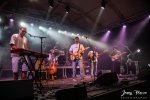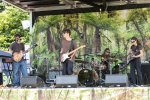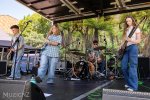Harper Finn
Bio

While society moves at a more introverted pace through our dependency on social media to ‘connect’, community is stronger than ever. Tie this in with an undeniable melody (a memorable guide for the lyric), instrumentation and ‘the message’, and you are left with an everlasting snapshot of human history.
New Zealand singer-songwriter, Harper Finn grew up listening to a wide variety of music, inspired by the eclectic tastes of his parents, which included everyone from Serge Gainsbourg, Kate Bush to The Clash, The Zombies and Jungle Brothers. His listening experience also reached into the bags of what his friends circles were listening to at the time, which was a mix of everything. The power in today’s pop music, Harper notes, is that ‘pop music’ is more diverse and unlimited than it ever has been. Gone is the territorial nature that once existed between hip-hop and rock listeners. Now we see listeners openly enjoying a wide range of music under the ‘pop’ umbrella.
Live music has always been a large part of Harper’s life. Working nights at a local venue in Auckland’s downtown, he was exposed to the powerful connection between music and youth culture, watching bands like post-punk gamechangers IDLES and pop megastar Billie Eilish perform to passionate, sweaty crowds of fans. Most fittingly perhaps, was that his first solo show took place on that very stage.
During Harper’s teenage years, the old (underage) soul was the keyboard player in a sprawling 8-piece hip-hop group, playing R18 venues across New Zealand. The challenge of keeping up with much older players kept Harper on his toes, also forming a deep appreciation for the attitude of hip-hop, as well as the passion and communication between the performer and the audience. The strong communal sense of belonging was palpable, forming a long lasting impression on Harper, who was just seventeen at the time.
Going from one cramped stage to the next, Harper decided to go it alone. During this time, he was studying History and Politics at The University of Auckland, where he began to develop an interest in thinking critically about memory; this inspired the route his songwriting would take, in debt to collective consciousness and fleeting snapshots of his youth.
Harper’s music is an ode to the coming of age; reflections on his life, on others’ lives, as observations of modern love, youth and young adulthood. As we grow older, move further away from our salad days, the various snapshots that make up our lives make more sense. Music can be the warm, connective tissue between our past and present, as we reflect on where we were, what we were doing, and who we were at the time. For a while, as we sing in unison, we are brought together in perfect harmony. In that moment, the past reaches out and unites us by song. It is the undeniable power of music and collective consciousness.
Single Conversations (With The Moon) leaves a lasting impression and a dark, twisted aftertaste; in a piano-driven allegory of longing that dances around a haunted minor key. Teenage Queen (mixed by Kody Nielson) will eat your heart out, and leave very little of it left. Dancing to the kinetic energy of life, the off-beat rhythmic impulses bite like a snapdragon.
As you will find, Harper’s songbook is like biting into a pie and discovering delicious, unusual notes as the flavours set in – like all precious and mysterious things.
Links
Image Galleries
Comments (Newest First)
There are currently no comments for this artist.
Search for Bands/Artists:
Latest Galleries

Evan Rhys & the Stereo Streets @ Festival of Lights - Pukekura Park, New Plymouth - 18/01/2025
Midwave Breaks @ Festival of Lights - Pukekura Park, New Plymouth - 18/01/2025
Rumpus Machine @ Music in Parks, Aotea Square, Auckland - 18/01/2025
Fan Club @ Music in Parks, Aotea Square, Auckland - 18/01/2025
NZ Top 10 Singles
- APT.
ROSÉ And Bruno Mars - DIE WITH A SMILE
Lady Gaga And Bruno Mars - BIRDS OF A FEATHER
Billie Eilish - TASTE
Sabrina Carpenter - I LOVE YOU, I'M SORRY
Gracie Abrams - ESPRESSO
Sabrina Carpenter - SAILOR SONG
Gigi Perez - LOSE CONTROL
Teddy Swims - A BAR SONG (TIPSY)
Shaboozey - GOOD LUCK, BABE!
Chappell Roan




 Add A New Artist
Add A New Artist

 Report A Problem
Report A Problem

